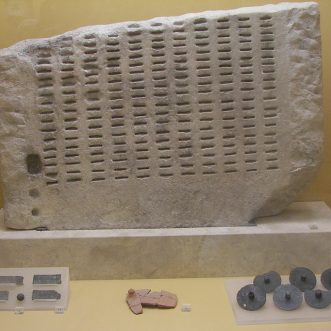March 15, 2023
For an Athenian man who didn’t want to be an idiot, the answer was to put yourself forward for public office. Appointment was by sortition – a lottery.
The Athenians built lottery machines like this kleroterion to ensure selection was random, because a) they believed all men were equally capable of making decisions with others, and b) they valued the diversity of perspective that diversity of occupation, status, and income would bring.
They also knew that the best way to preserve the Athenian Promise of Value, was to ensure maximum active participation in maintaining it.
Of course they left some people out – women and slaves didn’t count as citizens. But the mechanism was fair and very explicit and could easily have accommodated this kind of social change, given time.
We small businesses (and modern states) can learn from the Athenians, without making their mistakes. If everyone in our business believes in the same Promise of Value and knows how to Share it, Keep it and Improve it like a ‘Boss’, from their own and others’ perspectives, we can trust each and every one of them to do the right thing for the people we serve.
That doesn’t just lighten the load for us. It improves the experience for our clients and our teams. And most importantly of all, it keeps our businesses truly alive, thriving and able to adapt to whatever new perspectives come next.
Discipline makes Daring possible.
Ask me how.










